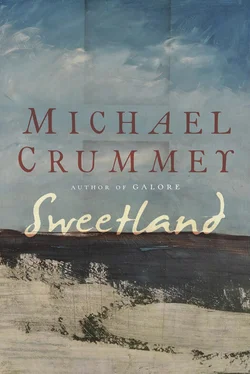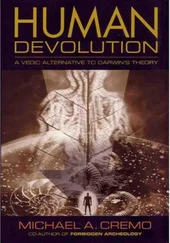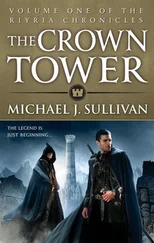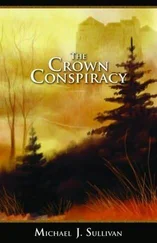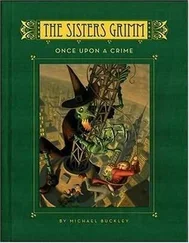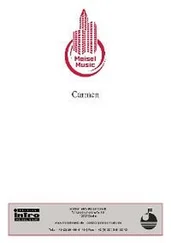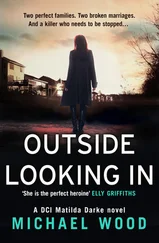That’s what they calls it.
Some stranger comes in to wipe your ass, is it?
Don’t be a bastard, Pilgrim said.
Sweetland shook his head. I hope to Jesus I’m dead before I comes to that.
Clara was planning to find a place to live nearby, Pilgrim told him, and she was applying to do a master’s degree in some field that involved digging up the ancient dead and guessing at how they styled their hair and what they ate and how they came to their unexceptional ends. It seemed a ludicrous thing to devote your life to.
You haven’t said nothing about where you might be shifting, Pilgrim said one afternoon.
I’m not going anywhere, Sweetland told him. Even to himself it was a surprise to have his mind stated so plainly.
What do you mean, you’re not going?
I still got title to my property.
You took the hundred grand.
I’ll give it back.
It don’t work like that, Moses.
Look, Sweetland said. What if I leaves on the ferry in September and comes back on my own a week later. Where’s the law says I can’t do that?
Pilgrim worked his mouth a few moments. There’s no law.
Well I’m just skipping that step.
Skipping it?
I’m not getting on the ferry.
I don’t know, Pilgrim said. Seems to me there’s nothing that simple about it.
And the blind fucker had been right about that.
In the morning he made the walk down to Music House to retrieve the food bag, setting off at first light, wanting to be out of the open as early as possible. When he worked himself clear of the valley he spent a moment watching the ocean, scanning east and west. But it was quiet out there.
The bag was a green duffle with a single strap that he wore across his chest, leaning forward to balance the weight as he carried it up the rise. In the valley he had to slough it off in spots to drag it through brush, heft it over piggledy moss-covered rock. It was like travelling with a corpse for company. The valley falling into afternoon shadow by the time he settled on his bed of branches, too tired for the moment to open the goddamn bag. He wanted a cup of tea but wouldn’t chance the fire. Draped an arm across his eyes and slept.
The noise of the Coast Guard chopper woke him before dark, coming in low over the shoreline. Likely they had spent the day searching the waters beyond St. Pierre and worked their way back toward Sweetland. Three people in the open bay doors, all wearing orange floater suits, all focused on the ocean below, and the sight of them made him feel suddenly ridiculous. He’d thought of it as a private decision to come out to the valley and turn his back on the world, something that concerned no one but him. But he felt now like he’d made a public fool of himself somehow.
He watched the vessels on the water all through the following day. A Coast Guard ship travelling slow toward Fortune Bay. Fishing boats out of Burgeo and Francois volunteering for the search. Searchlights swinging against the black into the evening, the beams scissoring along the shore. One more day at most they’d be out there. And that thought was all the comfort he had to offer himself.
In the days after he’d recovered Jesse’s body at the Fever Rocks, before he was well enough to get out of bed, he woke to see Clara sitting beside the window, one hand across her eyes as if she was dozing, or fending off a headache.
Ruthie, he said to her.
It’s Clara, she said, lifting her head to him.
He nodded slowly. Yes, he said. And the world began pouring in through that single thumb-sized fact.
We buried him yesterday, Clara said.
Who?
Jesse.
Yes, he said again.
We wanted to wait until you was well enough, she said, but.
He was a good boy, Sweetland said.
Clara stood and crossed the room at the foot of the bed, opened the door to leave. She paused there before she closed it, hidden from his view. She said, I wanted to thank you for getting him. Out at the light, she said.
She wasn’t able to say more than that for a long time. He thought she’d left and gone down the stairs when she said, Did you want anything, Moses? Something belonged to him?
Sweetland was too addled to decipher what she was suggesting and he let it sit awhile, though the longer he waited the less substantial it seemed, like a lozenge dissolving under his tongue.
You let me know, she said finally, if you thinks of something.
He had a boatload of dry goods set by for the coming winter, materials he’d smuggled in from Miquelon in the middle of August. Every night for a week he’d made a trip down to the shed that housed the ATM and withdrawn his daily limit. Seven thousand dollars in cash all told. He considered going into Fortune or Placentia or Burgeo, but there wasn’t a soul on the south coast of Newfoundland who wouldn’t hear of it within three days’ time. And after his conversation with Pilgrim, he thought it best to keep his intentions to himself. Took the boat across to Miquelon where no one knew him from Adam.
He tied up next to a raft of sailboats in the tiny marina. There was an office at the gate, a man in uniform behind the plate glass, and Sweetland waved a hand as he passed by, walked up through the town. Single-storey bungalows on an expanse of land that seemed to have been graded level, the streets laid out in a careful grid. He wandered half an hour looking for a shop that might carry salt beef and pickling salt. Stopped into the first grocery store he saw. He took a small cart and drove it up and down the aisles, filling it with flour and sugar and tea. He found a rack of batteries and loaded them all into the cart.
The woman at the cash said, You are staying in Miquelon?
Just picking up a few things for home, he said.
For home?
Yes, he said. Have you got any more of these?
What size?
Double As, I spose. Any will do.
She called toward the back of the store, carrying on an indecipherable conversation with a young man stacking shelves. He disappeared through a doorway and came to the front with an armful that he laid on the counter. He had a shaved head and an angry tattoo across the back of his neck.
Any of these? the woman asked.
Sweetland hooked the thick stack of twenties from his ass pocket and gestured toward her. Do you take this stuff?
Her eyes went back and forth between Sweetland and the money several times. Oui, she said quietly. We will take Canadian.
You don’t sell kerosene, by any chance.
No, but there is a place. She spoke to the young man in French a moment. He will get you what you need. How much?
Whatever they got. And ammunition, he said. For a.22. They wouldn’t have pickling salt, by any chance?
Pick-ling?
For making the fish, he said. Salt fish?
Oui. Give him five hundred dollars, she said, and then spoke in French awhile. He will bring you your change, she said.
After the young man left, she gestured at the material he had piled on the counter. Should I be worried? she asked.
Sweetland stared at her blankly.
Is it the world that is ending?
It took him a moment to follow what she was asking. No, he said and he half laughed at the notion. Not where you lives, anyway, he said.
He walked around the store a second time, picking through the bottles of oil and red wine vinegar, the racks of spices and shelves of oddly shaped bread, looking for anything useful. When he was done, the woman at the counter tallied up the bill. Sweetland counted out the twenties slowly and by the time he’d finished, a derelict blue Peugeot had pulled up outside. The young man got out of the driver’s side and came into the store. He handed Sweetland a fistful of euros in change and then began carting the boxes and bags out to the car.
He will drive you, the woman said. But he has no English.
Читать дальше
